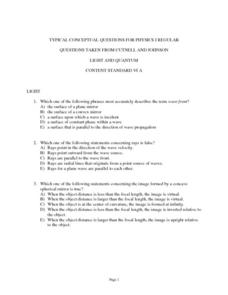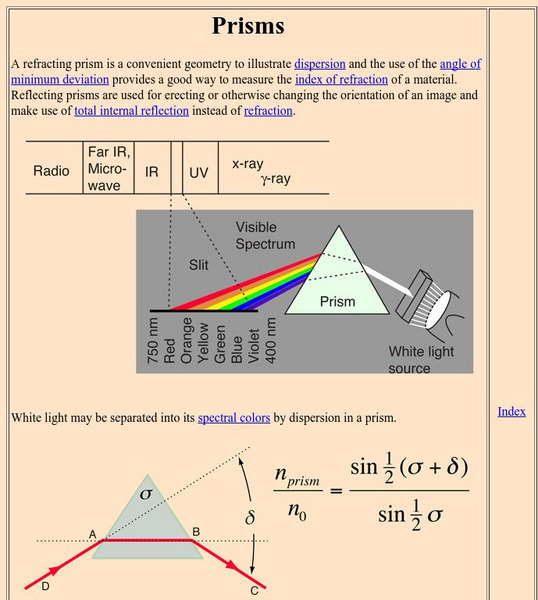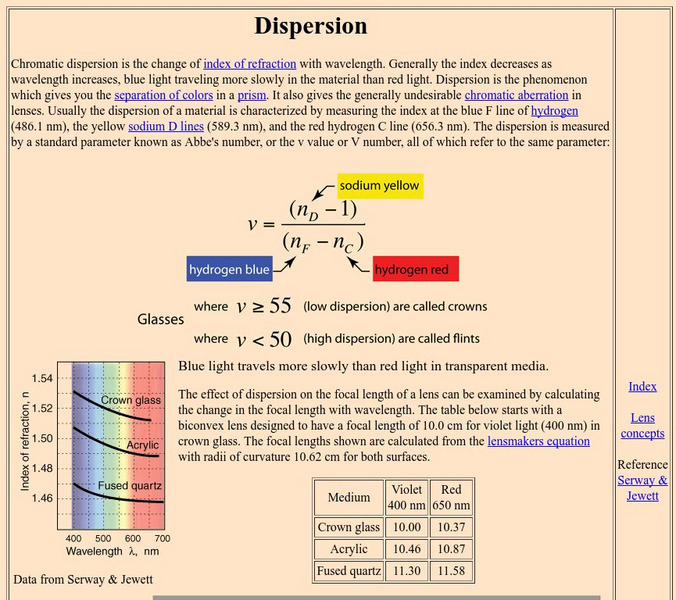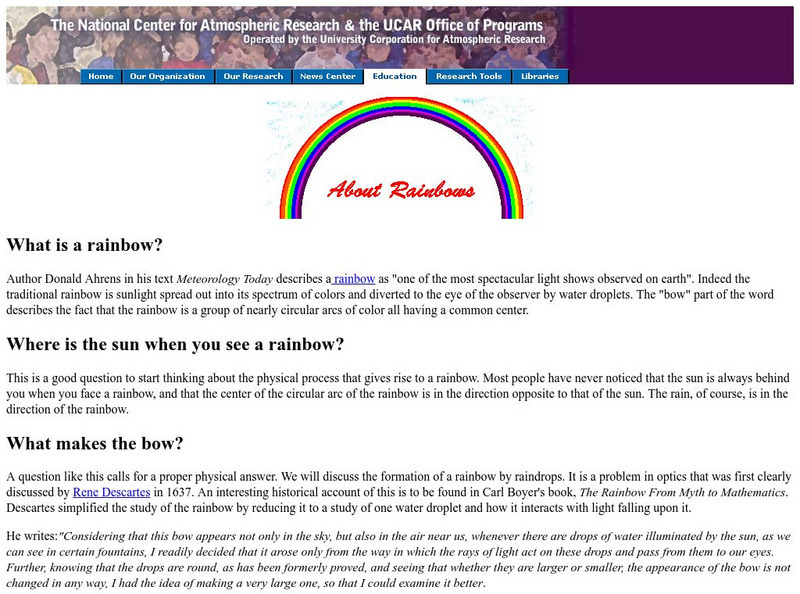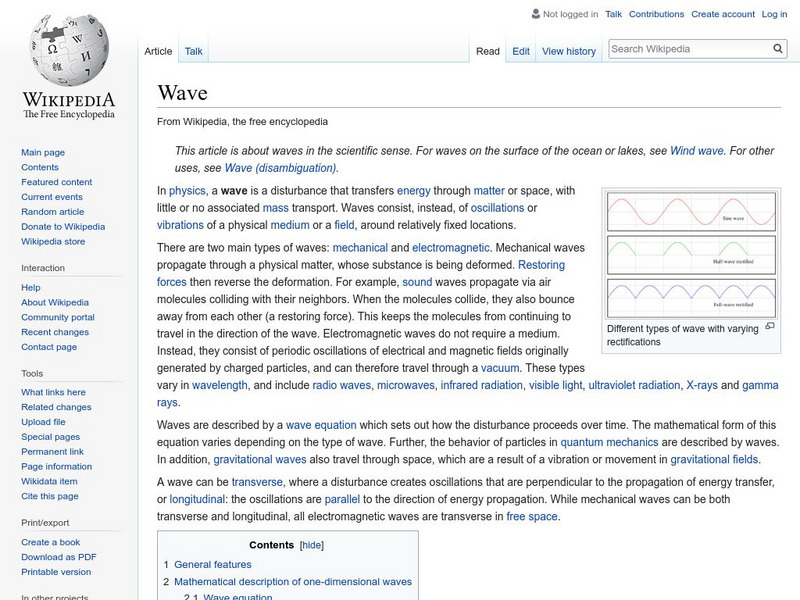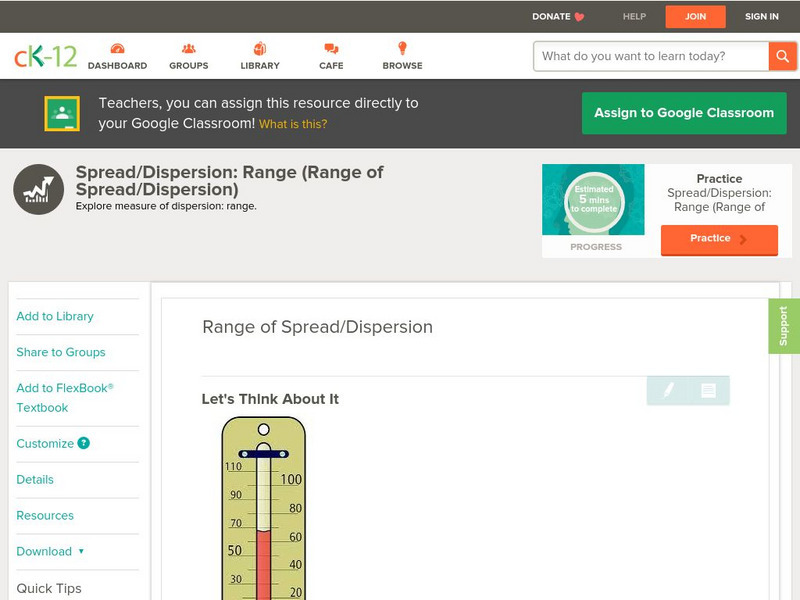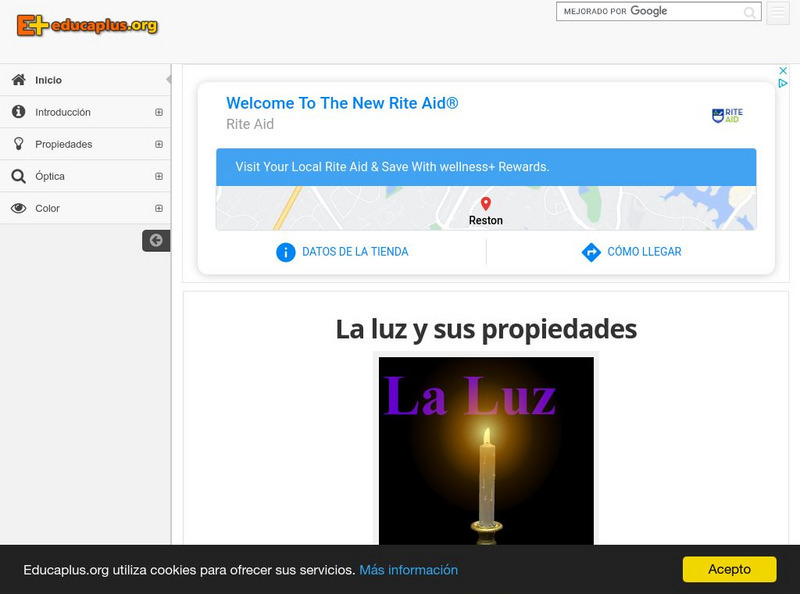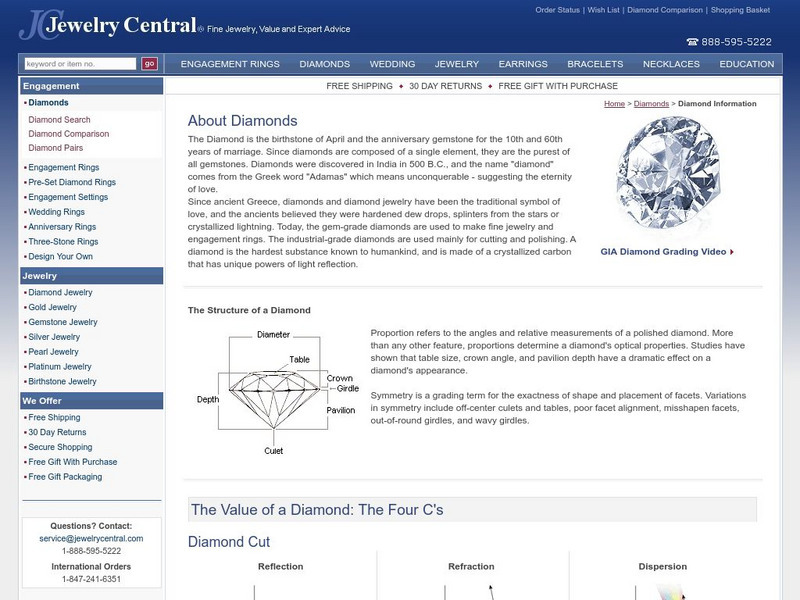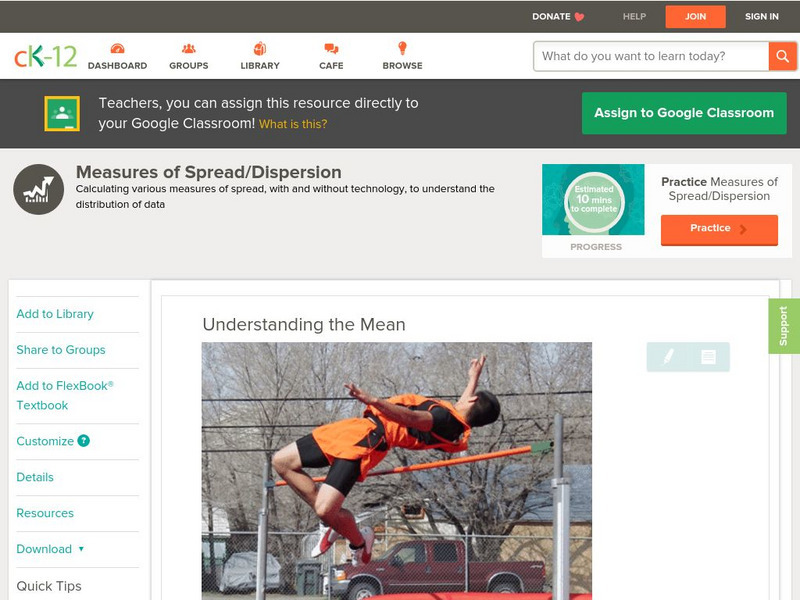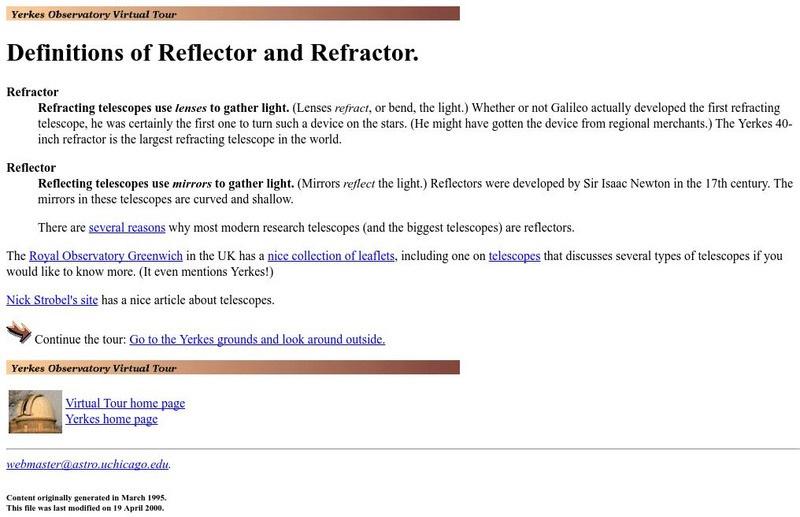Curated OER
Typical Conceptual Questions for Physics I - Light and Quantum
This is a stellar overview of everything light and quantum! There are 30 multiple choice questions, none of them requiring any mathematical computation. There are a few diagrams to analyze: light rays striking reflective and refractive...
Curated OER
Physics 152 ~ Fall 2003 Midterm Exam #3, Parts A, B
Illuminated physics stars show what they know about light by taking this exam. They match several related vocabulary terms to descriptions and answer multiple choice questions about the characteristics of light, magnification, and...
Curated OER
Plants: Scattering Seeds
Students collect and microscopically examine seeds from the school yard and neighborhood. In small groups, they draw and discuss the shapes of the seeds to determine each plant's method of dispersal. they also test two types of seeds...
Georgia State University
Georgia State University: Hyper Physics: Prisms
This physics department site explains how prisms work and their purpose in the dispersion of light. Explains the angle of deviation and includes an interactive form in which visitors calculate the angle of deviation and receive immediate...
Georgia State University
Georgia State University: Hyper Physics: Dispersion
The phenomenon of light dispersion is explained with a formula and a practice form for calculating Abbe's number.
BioEd Online
Bio Ed Online: Why Circulate?
In this lesson plan middle schoolers will observe the dispersion of a drop of food coloring in water, draw conclusions about the movement of dissolved substances, and develop explanations about the importance of organisms' internal...
Physics Classroom
The Physics Classroom: Light Waves and Color
The behavior of light waves is introduced and discussed. Also, polarization, color, diffraction, and interference are introduced and discussed thoroughly as supporting evidence of the wave nature of light.
Georgia State University
Georgia State University: Hyper Physics: Architecture for Acoustics
A physics tutorial on designing an auditorium and solving the problem of sound reflection. Illustrated.
University Corporation for Atmospheric Research
Ucar: About Rainbows
This site from the University Corporation of Atmospheric Research provides an illustrated article about the phenomenon of rainbows.
Wikimedia
Wikipedia: Wave
An in-depth encyclopedia article from Wikipedia on waves gives a definition for what a wave is. Other content in the article includes a list of examples and characteristics of waves, information about the difference between transverse...
Oswego City School District
Regents Exam Prep Center: Statistical Studies, Central Tendency, and Dispersion
The mathematics tutorial investigates statistical studies, central tendency, and dispersion. The lesson consists of class notes, calculator tips, examples, and practice problems with solutions. The teacher resource includes an activity...
CK-12 Foundation
Ck 12: Statistics: Range of Spread/dispersion
[Free Registration/Login may be required to access all resource tools.] Determine the range of a given set of data.
CK-12 Foundation
Ck 12: Statistics: Range of Spread/dispersion
[Free Registration/Login may be required to access all resource tools.] Find the range of a set of data.
Educaplus (Jesús Peñas Cano)
Educaplus: La Luz
What do you know about light? Learn about it through this interactive site. At the end you can take a test to test your knowledge. A scientific calculator is also provided.
Jewelry Central
Jewelry Central: Diamond
Discusses in detail the grading of diamonds, as well as briefly discussing their structure, physical properties, and historical background. Accompanied by clear illustrations.
Physics Classroom
The Physics Classroom: The Electromagnetic and Visible Spectra
A tutorial on the electromagnetic and visible spectra. Discusses dispersion and how perceptions of white and black are related to the visible light spectrum.
Physics Classroom
The Physics Classroom: Refraction and the Ray Model of Light: Rainbow Formation
Understand the physics behind Roy G. Biv, and how rainbows are formed by drawing upon our understanding of refraction, internal reflection, and dispersion.
CK-12 Foundation
Ck 12: Measures of Central Tendency and Dispersion Grades 9 10
[Free Registration/Login may be required to access all resource tools.] Decide which measure of central tendency best describes a data set.
CK-12 Foundation
Ck 12: Measures of Central Tendency and Dispersion Grades 8 9
[Free Registration/Login may be required to access all resource tools.] Learn how to calculate different measures of central tendency, as well as the spread or dispersion of the data.
CK-12 Foundation
Ck 12: Measures of Central Tendency and Dispersion Grades 11 12
[Free Registration/Login may be required to access all resource tools.] This Concept introduces students to the most common measures of central tendency: the mean, median and mode.
CK-12 Foundation
Ck 12: Measures of Central Tendency and Dispersion Grade 8
[Free Registration/Login may be required to access all resource tools.] Find the mean, median, mode and range of a data set.
CK-12 Foundation
Ck 12: Statistics: Measures of Spread/dispersion Grade 8
[Free Registration/Login may be required to access all resource tools.] Understanding the mean and statistical deviations.
CK-12 Foundation
Ck 12: Statistics: Measures of Spread/dispersion Grades 11 12
[Free Registration/Login may be required to access all resource tools.] This Concept introduces students to the some of the measures of spread commonly used, such as range, standard deviation and variance.
University of Chicago
University of Chicago: Reflector and Refractor
From the Yerkes Observatory Virtual Tour web site. Compares and contrasts reflecting and refracting telescopes. A link from the page leads to a second page which explains why most modern research telescopes are reflecting telescopes.


